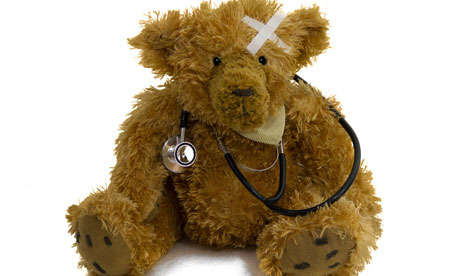
If you wake up during freshers' week and you feel rubbish, what are you going to do? Once you've left home you are responsible for your own health. No pathetic croak, or shout down the stairs, will bring mum with swift cups of Lemsips and a lift to the doctor.
Sorting out your healthcare is a really important part of starting university, and one that too many students forget about.
A combination of late nights, a lot of drinking and coming into contact with a whole bunch of new germs from different parts of the country – or the world – could give you the bug university doctors call "freshers flu".
It may not be the flu, it may be something else, but either way it will be your responsibility.
Here are some steps you can take towards healthcare independence while you're still packing your bags, and things you should know for when you arrive at uni.
What you can do right now
• Call your current GP surgery and find out if you have been vaccinated against MMR and Meningitis C – some halls of residence insist on this information before they'll let you come.
• If you're on a repeat prescription drug, get a supply of your medication before you leave for college.
• Be aware of the signs and symptoms of meningitis.
• Check with your parents the name and address of your current doctor.
• And find out about how to register with the university doctor or medical centre.
Your first point of contact for all your general medical needs is your GP surgery and they take responsibility for your care. But your old practice cannot do that if you are moving away. You will need to register with a new GP near where you will be living. This will probably be the university practice and you should register with them now – not just when you need them.
The website campusdoctor.co.uk, hosts a number of university health centres that let you complete the registration forms online, before you even leave for uni. The site guides you through the form, and it doesn't take long. This year, for the first time, Bristol, Bradford and Lancaster are registering students online through the website. The website also gives links and details to other university health centres.
As soon as registration is complete, the process will have started that will see all your medical notes moved to your new GP practice. This means they can see your medical history and give you the best and most appropriate treatment. Don't worry, you can visit your old doctor in the holidays but you will be viewed as temporary resident.
When you get to university
• Complete the GP registration process if you haven't already done this online.
• Find out how to get to the health centre, and any other information about contacting the doctors that you haven't picked up online.
• Let the new surgery know if you have any pre-existing medical conditions.
• If you will be a student in England, apply for an HC2 certificate. If you are eligible, this will help or exempt you from paying a prescription fee for these (currently £8.05 per item). Without an HC2 certificate anyone aged 19 or over will pay these prescription charges. Prescriptions are free for everyone living in Wales, Scotland or Northern Ireland.
• Don't make the mistake of handing in your old prescription request form from home at your new pharmacy – they can't send it to your old doctor for a prescription.
What to do when you get ill
• It's a life threatening emergency, always dial 999.
• Call 111. You should use the NHS 111 service if you urgently need medical help or advice but it's not a life-threatening situation. Calling 111 is free and available 24 hours a day – 365 days per year. Call 111 if you need health information or reassurance about what to do next.
• But if it's not an emergency you could do some basic checks yourself using online resources such as patient.co.uk and NHS choices symptom checker.
But most important of all, make contact with your new university surgery or one close to where you'll be living. If you've prepared and registered with the surgery, you'll know all about them, and hopefully now holding your notes, they'll know all about you. Don't leave it too late – if you're unfortunate enough to catch freshers' flu, you'll wish you'd signed up sooner.

